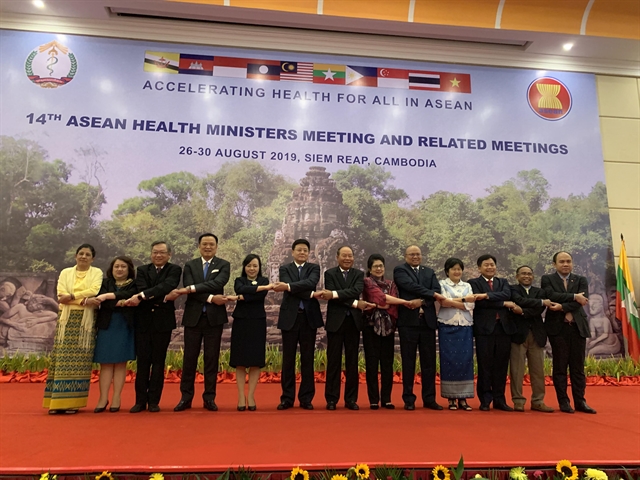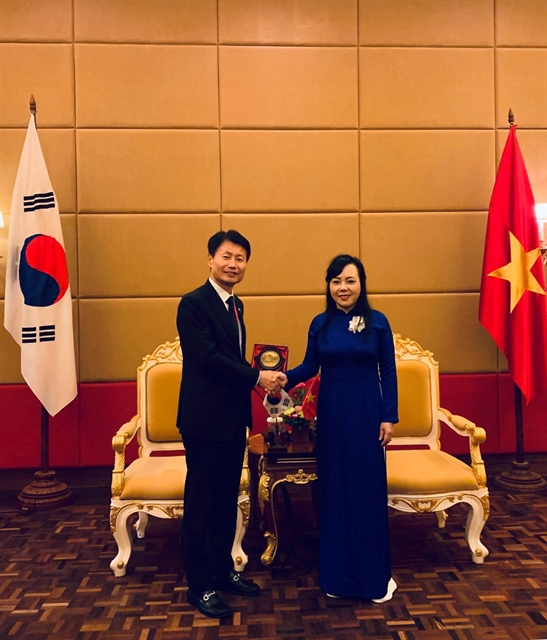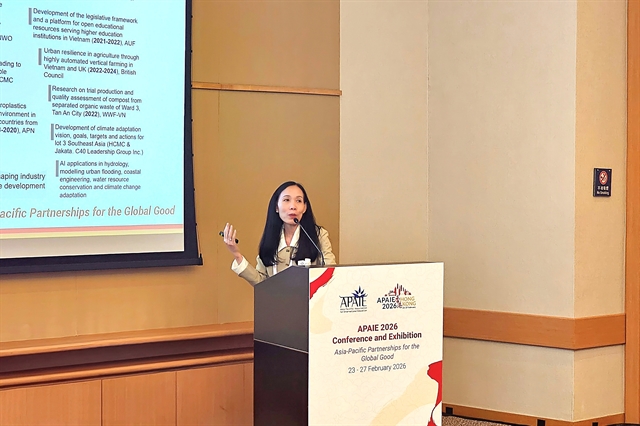 Society
Society

Việt Nam has proposed strengthening co-operation between ASEAN and China, the Republic of Korea (RoK) and Japan to prevent and control of emerging infectious diseases.

|
| ASEAN and Chinese health ministers at the meeting. — Photos courtesy of the health ministry |
SIEM RIEP — Việt Nam has proposed strengthening co-operation between ASEAN and China, the Republic of Korea (RoK) and Japan to prevent and control of emerging infectious diseases.
Vietnamese Minister of Health Nguyễn Thị Kim Tiến made the recommendation at the eighth ASEAN+3 Health Ministers’ Meeting in Siem Riep, Cambodia on Friday morning.
Addressing the event, Minister Tiến said Việt Nam is a responsible member of the World Health Organisation and has met core capacity requirements of IHR since 2014. Việt Nam has worked on a general plan to implement IHR.
Việt Nam shares long borders with China, Laos and Cambodia with high volumes of people and goods crossing the borders every day. This has posed high risks of infectious diseases across borders such as H7N9 flu, Ebola, Mers-CoV, measles and malaria, Tiến said, adding that ASEAN, China, the RoK and Japan must share professional experience and techniques to prevent and control infectious diseases at workshops and step up co-operation among border localities to jointly respond to illnesses.
Leaders at the meeting reached an agreement to foster co-operation in medical sector to implement the Asia-Pacific strategy for emerging diseases and public health emergencies by advancing implementation of the IHRs and bringing safe, effective and quality medicines to the public.
They reiterated commitments to realise the UN Sustainable Development Goals, aiming at universal healthcare coverage by 2030.

|
| Vietnamese Minister of Health Nguyễn Thị Kim Tiến (right) meets with Vice Minister of Health and Welfare of RoK Kim Gang-lip. |
The ASEAN+3 health ministers have acknowledged and lauded the contributions and commitments to work together from development partners, social organisations and the private sector.
In the afternoon, ASEAN and Chinese health ministers attended a round table discussion on improving healthcare service quality.
Minister Tiến said Việt Nam has focused on improving public healthcare service quality and considered public trust the core of healthcare service. The country has developed a network of family doctors to ensure the public can access to services.
“More than 80 per cent of patients in Việt Nam feel satisfied with the healthcare service, according to an independent survey,” she said. “Việt Nam will continue to improve and renovate the healthcare system to make contributions to a healthy and sustainable ASEAN Community.”
The ASEAN-China Health Ministers’ Meeting agreed to make healthcare service quality improvement the top priority of the bilateral co-operation in the 2020-21 period.
Minister Tiến also had a meeting with Vice Minister of Health and Welfare of RoK Kim Gang-lip, during which Tiến proposed the RoK side support and share experiences from establishing RoK’s Centres for Disease Control and Prevention and Food and Drug Administration.
Tiến proposed the two sides step up collaboration in population and family planning. — VNS




